Muscadol tablets typically contain a combination of active substances, including paracetamol (acetaminophen) and orphenadrine citrate. Orphenadrine is a muscle relaxant, while paracetamol is a pain reliever and fever reducer.
What are Muscadol Tablets?
Muscadol tablets are a medication commonly prescribed to manage musculoskeletal pain and discomfort. They typically contain a combination of active ingredients, primarily paracetamol (acetaminophen) and orphenadrine citrate. Paracetamol is a widely used pain reliever and fever reducer, while orphenadrine citrate acts as a muscle relaxant.
The combination of these ingredients in Muscadol tablets offers a dual mechanism to alleviate various forms of musculoskeletal pain, including muscle spasms, strains, sprains, and related injuries. Orphenadrine citrate targets the muscle spasms by relaxing them, reducing tension and discomfort. Paracetamol helps to alleviate pain and reduce fever that may accompany these conditions.
Due to its muscle-relaxing and pain-relieving properties, Muscadol tablets are often prescribed in cases of acute musculoskeletal pain or conditions where muscle spasm contributes to discomfort. However, it’s crucial to use Muscadol tablets precisely as prescribed by a healthcare professional. The dosage and duration of use should be followed strictly to avoid potential adverse effects or complications.
As with any medication, Muscadol tablets can have potential side effects, including drowsiness, dizziness, dry mouth, blurred vision, and constipation. Some individuals may experience allergic reactions or more severe side effects, so it’s essential to report any unusual symptoms to a healthcare provider promptly.
Before using Muscadol tablets, it’s advisable to inform your doctor about any existing medical conditions, ongoing medications, allergies, or pregnancy/breastfeeding status to ensure its safety and efficacy. Additionally, be cautious about possible interactions with other drugs or substances, as they could affect the effectiveness or safety of Muscadol tablets.
What is the active substance in Muscadol Tablets?
The primary active substances in Muscadol Tablets are paracetamol (also known as acetaminophen) and orphenadrine citrate. Paracetamol is a widely used pain reliever and fever reducer, while orphenadrine citrate acts as a muscle relaxant. The combination of these ingredients provides dual relief by targeting musculoskeletal pain, muscle spasms, strains, and related discomfort. Paracetamol eases pain and reduces fever, while orphenadrine citrate relaxes muscles, alleviating tension and discomfort associated with various musculoskeletal conditions. It’s essential to use Muscadol Tablets as directed by a healthcare professional to ensure their effectiveness and safety.
Muscadol Tablets Uses
Muscadol Tablets offer versatile uses and benefits in managing musculoskeletal conditions, providing relief from pain, muscle spasms, and related discomfort. Here are the positive uses of Muscadol Tablets:
- Musculoskeletal Pain Relief: Muscadol Tablets are primarily prescribed to alleviate musculoskeletal pain arising from injuries, strains, sprains, or conditions like fibromyalgia. The combination of paracetamol and orphenadrine citrate targets different aspects of pain, offering effective relief.
- Muscle Spasm Alleviation: Orphenadrine citrate, a muscle relaxant in Muscadol, works directly on muscle spasms. It eases tension, reducing spasms and allowing for improved mobility and comfort.
- Enhanced Pain Management: The dual action of paracetamol as a pain reliever and orphenadrine citrate as a muscle relaxant ensures a comprehensive approach to managing pain. This combination often results in more effective pain relief compared to single-ingredient medications.
- Improved Functionality: By reducing pain and muscle spasms, Muscadol Tablets can enhance daily functionality for individuals suffering from conditions affecting their musculoskeletal system. This may include better movement, improved ability to perform daily activities, and an overall increase in comfort.
- Treatment of Acute Conditions: Muscadol is commonly used to address acute musculoskeletal pain resulting from sudden injuries, accidents, or overexertion. It offers rapid relief, aiding in the recovery process.
- Adjunct Therapy: Muscadol Tablets are often used as part of a broader treatment regimen for musculoskeletal issues. They can complement other therapeutic interventions like physiotherapy or rehabilitation programs, facilitating a more comprehensive approach to recovery.
- Tolerability: For many individuals, Muscadol Tablets are well-tolerated and provide effective relief without causing significant side effects. This makes it a preferred choice for managing musculoskeletal pain in various age groups.
Always consult a healthcare professional for proper diagnosis and guidance on the appropriate use of Muscadol Tablets. Adhering to prescribed dosages and recommendations ensures the maximum benefit and minimizes the risk of potential side effects.
How to Use Muscadol Tablets
Using Muscadol Tablets effectively involves following a few simple guidelines for optimal results:
- Dosage Guidance: Take Muscadol Tablets exactly as prescribed by your healthcare provider. Follow the recommended dosage and avoid exceeding the specified amount or frequency unless advised otherwise.
- Administration: Swallow the tablets whole with a glass of water. Do not crush, break, or chew them unless your doctor advises otherwise. This ensures the proper and controlled release of the medication.
- Timing: Take Muscadol Tablets with or without food, depending on your doctor’s instructions. Some people may experience fewer stomach-related side effects when taken with food.
- Consistency: Maintain a consistent schedule for taking Muscadol Tablets to ensure a steady level of the medication in your system. This helps in managing pain and muscle discomfort effectively throughout the day.
- Caution with Other Medications: Inform your healthcare provider about any other medications, supplements, or herbal remedies you are taking. Some drugs may interact with Muscadol Tablets, affecting their effectiveness or causing adverse reactions.
- Avoid Alcohol: Limit or avoid alcohol consumption while taking Muscadol Tablets, as it can increase the risk of side effects such as dizziness or drowsiness.
- Consultation: If you miss a dose, take it as soon as you remember. However, if it’s close to the next scheduled dose, skip the missed one. Never double up on doses unless advised by your doctor.
Remember, the usage instructions may vary based on individual health conditions, so it’s crucial to strictly adhere to your healthcare provider’s guidance for the safest and most effective use of Muscadol Tablets. If you have any questions or concerns about the usage, consult your healthcare professional for clarification and guidance.
Possible Side Effects of Muscadol Tablets
Muscadol tablets, comprising orphenadrine citrate among its active ingredients, can offer relief from muscle discomfort and pain. While these tablets aim to alleviate discomfort, they may also present some potential side effects. It’s crucial to be aware of these possibilities when using this medication.
Here’s a list of positive effects and potential side effects to consider:
- Pain Relief: Muscadol tablets are primarily designed to provide relief from muscular pain and discomfort.
- Muscle Relaxation: The active ingredient, orphenadrine citrate, works as a muscle relaxant, aiding in soothing muscle spasms and tension.
- Improved Mobility: By reducing muscle tension, Muscadol tablets may enhance mobility and flexibility.
However, like most medications, Muscadol tablets can lead to certain side effects in some individuals:
- Drowsiness or Dizziness: This medication might cause drowsiness or dizziness, particularly when taken in combination with other substances that induce sleepiness.
- Dry Mouth: Some users may experience dryness in the mouth as a side effect of Muscadol tablets.
- Blurred Vision: Occasional reports indicate temporary blurring of vision as a side effect, although this is relatively uncommon.
- Nausea or Upset Stomach: Some individuals may experience mild gastrointestinal discomfort after taking Muscadol tablets.
- Allergic Reactions: In rare cases, allergic reactions such as rash, itching, or swelling might occur.
Always consult a healthcare professional before starting any medication, and inform them about your medical history and any other medications or supplements you’re taking to minimize the risk of adverse effects. These side effects may not affect everyone and might vary in intensity from person to person.
Read more: All You need to know about Dexilant 30 mg
Muscadol Tablet Interactions
Muscadol tablets, containing orphenadrine citrate as a key component, may interact with various medications, altering their effects or causing potential side effects. It’s crucial to discuss potential interactions with a healthcare professional before starting Muscadol tablets. Here are some known interactions:
- Central Nervous System Depressants: Combining Muscadol with substances that also depress the central nervous system, such as alcohol, sedatives, or certain antihistamines, can increase drowsiness and dizziness.
- Anticholinergic Medications: Medications with anticholinergic effects, like some antidepressants, antihistamines, or medications for Parkinson’s disease, may intensify the anticholinergic effects of Muscadol, leading to increased side effects like dry mouth, blurred vision, or constipation.
- MAO Inhibitors: Concomitant use of Muscadol with monoamine oxidase inhibitors (MAOIs) can lead to enhanced anticholinergic effects or increased blood pressure, requiring careful monitoring by a healthcare professional.
- Urinary Alkalinizers: Medications that increase the pH of urine might interfere with the elimination of orphenadrine, potentially altering its effectiveness.
Always inform your healthcare provider about all medications, including prescription, over-the-counter drugs, supplements, and herbal remedies, to prevent potential interactions or adverse effects. They can provide personalized advice and adjust your treatment plan accordingly to ensure your safety and the effectiveness of the medication.
FAQs about Muscadol Tablets
What is the drug muscadol used for?
Muscadol is a medication used primarily to relieve muscle discomfort and pain. Its active ingredient, orphenadrine citrate, acts as a muscle relaxant, helping to alleviate tension, spasms, and strains in muscles. It’s commonly prescribed for conditions like muscle injuries, sprains, or other musculoskeletal issues that cause discomfort. Muscadol aims to improve mobility and reduce pain by targeting the muscles directly. However, it’s essential to use this medication under a doctor’s guidance to ensure proper dosage and to minimize potential side effects.
Is Muscadol a painkiller?
Yes, Muscadol can be classified as a painkiller. It contains orphenadrine citrate, which acts as a muscle relaxant and helps alleviate pain associated with muscle strains, spasms, or injuries. While its primary function is as a muscle relaxant, it indirectly reduces pain by relaxing tense muscles, thereby providing relief from discomfort. However, it’s important to note that Muscadol might not be as commonly recognized as some traditional painkillers like ibuprofen or acetaminophen, but it does have pain-relieving properties, particularly for muscle-related pain. Always consult a healthcare professional for proper guidance on using Muscadol or any pain-relief medication.
What is a muscadol 450mg Tablet?
A Muscadol 450mg tablet typically refers to a specific formulation of the medication containing 450 milligrams of the active ingredient orphenadrine citrate. Orphenadrine citrate is a muscle relaxant used to relieve discomfort and pain associated with muscle strains, spasms, or injuries. This particular dosage strength of Muscadol is prescribed by healthcare providers based on the severity of the condition and individual patient needs. It’s essential to follow the prescribed dosage instructions provided by a healthcare professional to ensure safe and effective use of Muscadol 450mg tablets.
Is orphenadrine a muscle relaxant?
Orphenadrine is indeed classified as a muscle relaxant. It works by targeting the nervous system to alleviate muscle spasms and tension. Its primary function involves relaxing muscles, reducing stiffness, and easing discomfort caused by strains, sprains, or other muscle-related injuries. Orphenadrine citrate, the active ingredient in medications like Muscadol, helps to diminish the signals causing muscle contractions, allowing the muscles to relax and easing the associated pain.
Its muscle-relaxing properties make it a valuable component in addressing musculoskeletal conditions. It’s often prescribed alongside other medications to offer comprehensive relief for muscle-related discomfort. While it’s effective in providing relief, it’s essential to use orphenadrine under a doctor’s guidance and adhere to prescribed dosages to minimize potential side effects.
Orphenadrine’s classification as a muscle relaxant signifies its targeted action on the muscular system, making it a valuable component in addressing various conditions where muscle relaxation is necessary for pain relief and improved mobility. Always consult a healthcare professional for guidance on its use and to ensure it’s the right option for addressing your specific muscle-related concerns.


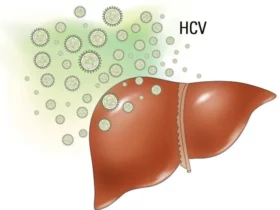

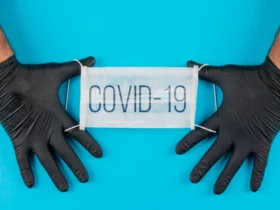

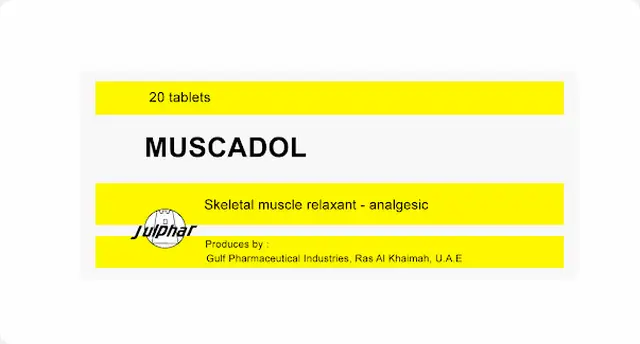
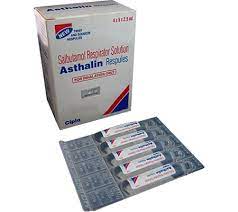
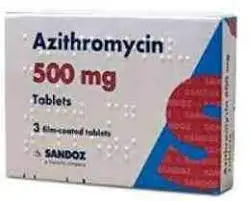
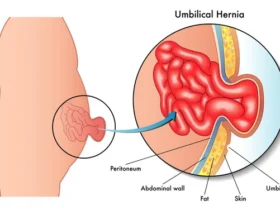
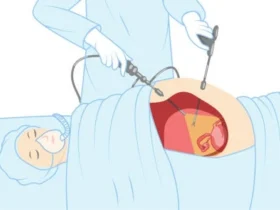
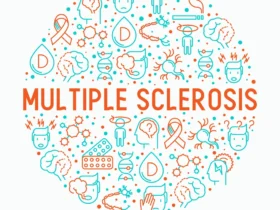

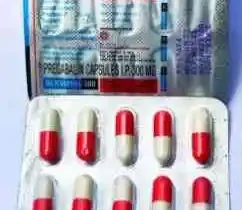
Leave a Reply